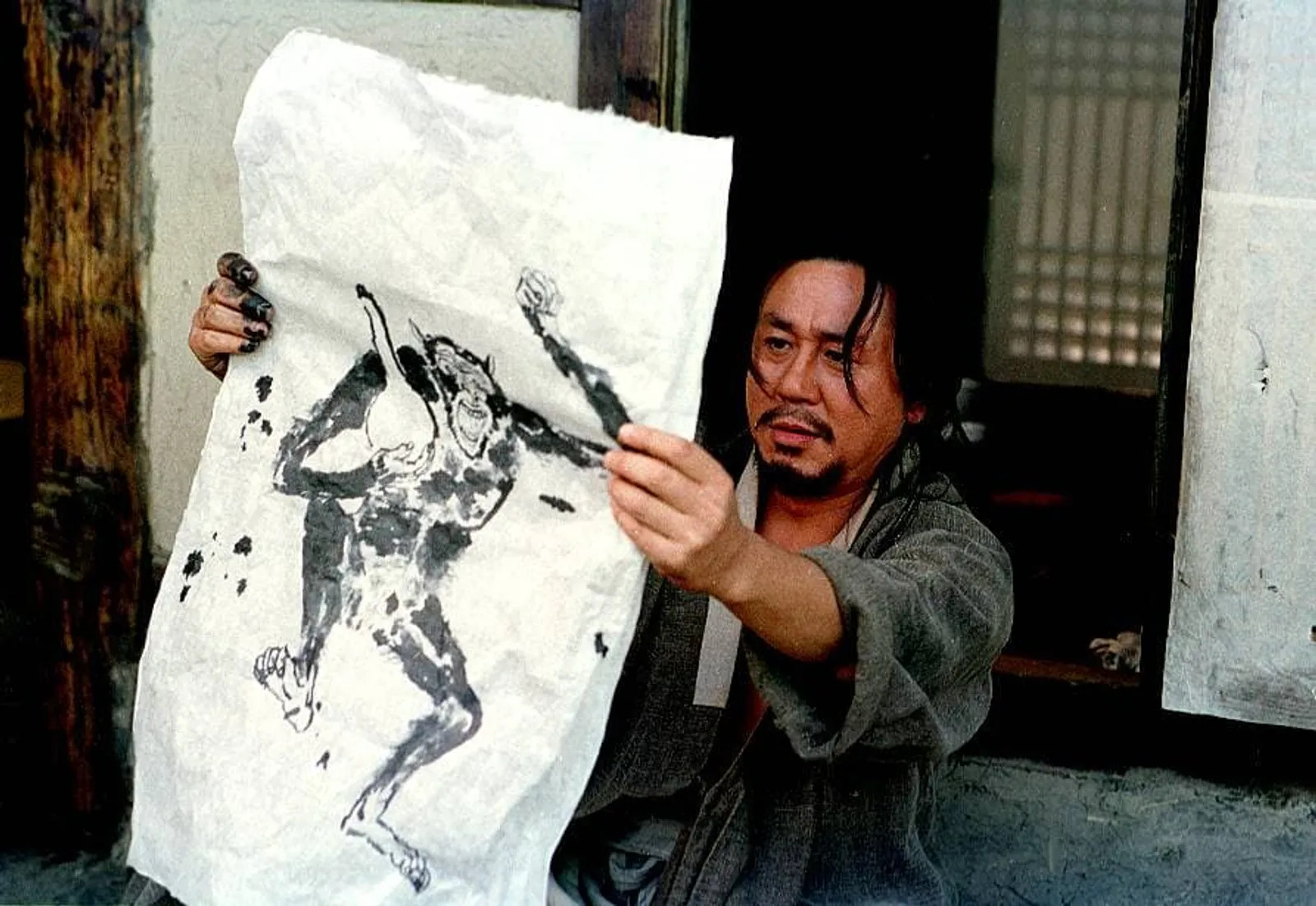‘Painted Fire’’s deeper context of bias in society and class barriers successfully channels its protagonist’s feelings of abandonment

Choi Min-sik plays Jang Seung-up in 'Painted Fire.' Photo courtesy of Festival de Cannes.
Painted Fire became a trailblazer in Korean cinema to be awarded the prestigious Palme d’Or at the 55th Cannes Film Festival.
A cinematic masterpiece, Painted Fire stands as a testament to Korean filmmaking’s artistic legacy through the decades. Painted Fire—the English for Chihwaseon—became the first Korean movie to win the Cannes Film Festival in 2002, a watershed moment for Korean cinema. Directed by the venerated Im Kwon-taek, it captured international attention, leaving an indelible impression on the South Korean cultural landscape. Its big victory at Cannes that year, when Im won Best Director with Paul Thomas Anderson for Punch-Drunk Love, not only spotlights his ingenuity as a filmmaker but also speaks for Korean cinema’s expanding audience and rising profile.
Painted Fire, Im’s 98th film, draws on the existence of the celebrated and fiercely passionate painter Jang Seung-up, famous as Oh-won (Choi Min-sik), who revolutionized Korean art during the 19th century. A reputable but self-destructive individual, he supposedly went missing and was presumed dead. The film’s impact goes well beyond its momentous Cannes win, as it captures the complicated dynamics and challenges of a stormy chapter in Korean history and its effects on the Korean way of life, as seen through Jang Seong-up’s narrative.
It opens to Jang being wary of someone in love with his creations. In flashback, his upbringing emerges—raised as an orphan, he’s a wandering bohemian soul with an innate ability to draw. In a bid to forge a painting style of his own, Jang endures mockery, setbacks, and hardships. He’s also self-absorbed, often wasted, and severely harsh. Later in what happens, he becomes an artist, valuing art over money to the point where, after failing an assignment for a painting the king had given him, he leaves the palace, forfeiting his job as a royal painter, melting into thin air in 1897. Painted Fire’s deeper context of bias in society and class barriers successfully channels Jang’s feelings of abandonment.
Director Im Kwon-taek, a veteran of Korean cinema, is revered for his extensive and rich professional trajectory alongside his concentrated work on Korean society. He’s also known for articulating his personal experiences together with the emotions and mental images that come from them, as apparent in Painted Fire.
Back in 2002, at the official press conference of the 55th Cannes Film Festival, Im commented on the parallels he had drawn between himself and Jang Seung-up. “This painter began his career at the age of approximately 20, and he had a long career because he died when he was 54, and I began my career at the age of about 20, and I survived.” Subsequently, “he married when he was about 40; this is my case too,” and third, “he was fond of drinking, and I too went through a period when I was better known perhaps as an alcoholic than as a director,” Im added. Besides, “Jang Seung-up liked beautiful women; he liked having women around him when he was painting, and I too loved making films with beautiful women,” he said, reiterating his admiration for women, beautiful or not, and thus, from such viewpoints, “though we are not working in the same profession, we no doubt share similar experiences,” noted the filmmaker.
Painted Fire explores how its visuals, the Korean countryside, cultural allusions, and paintings by Jang Seung-up come together to create works of art while also illuminating the innermost thoughts of a gifted artist and his identity crisis amid Korea’s reform movement, torn between China and Japan.
Artist teams up with lyricist-composer Lovish Sheetal and producer Yash Aggarwal for the moody, melancholic…
The actors first confirmed their relationship in 2021 after starring in Spider-Man: Homecoming in 2017
The book, an investigation into the internal practices and cultural effects of the streaming giant,…
The settlement announced in court Monday averted a trial set to begin next week
The actress was originally scheduled to present at the Golden Globes on Sunday
Songs like ‘Chehra, ‘Dooriyan’ and ‘Move’ goes all in on electro-pop